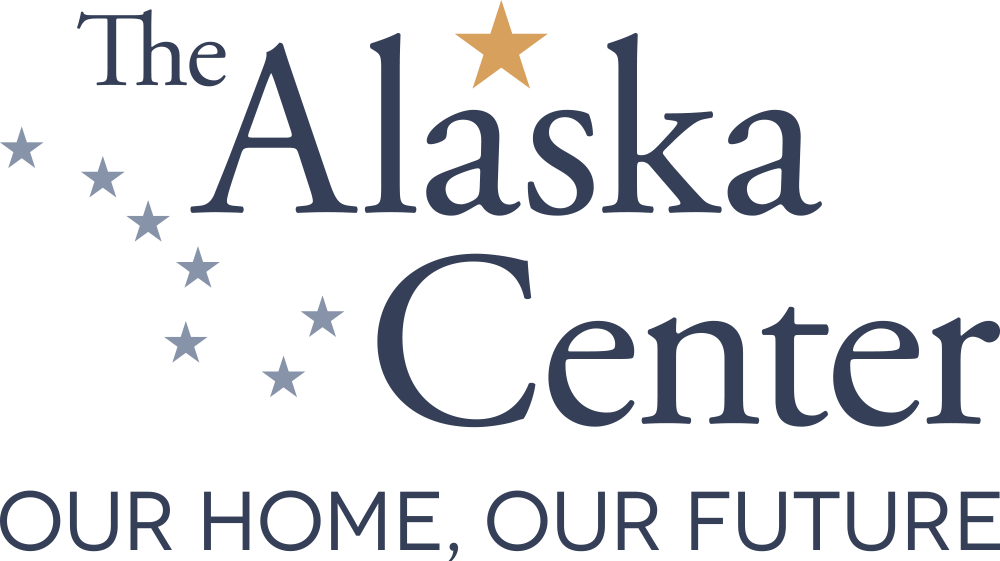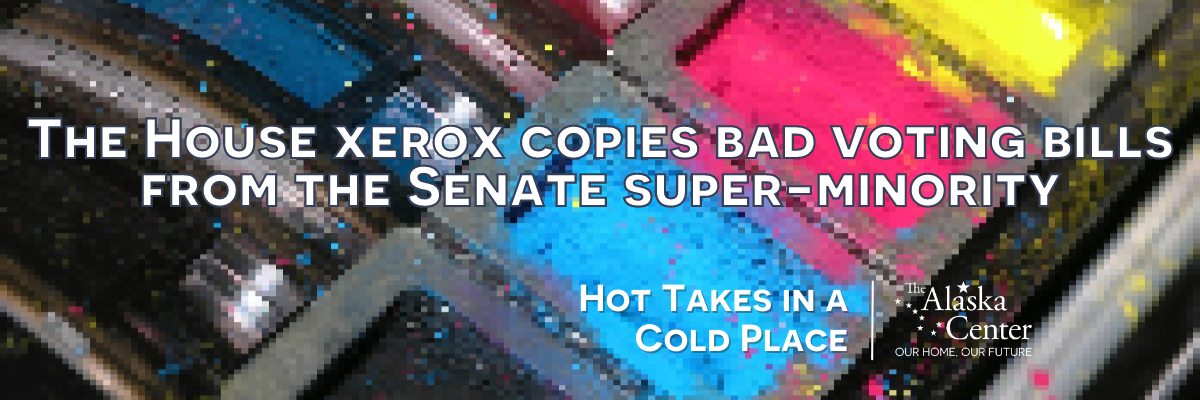A slew of bills pertaining to elections and voting saw airplay this week in the House State Affairs Committee. HB 1 intends to repeal Ranked Choice Voting/Open Primaries (bad), and HB 37 to institute ballot-curing, postage paid by mail envelopes, and a ballot tracking system (good) were heard on Tuesday and held in committee.
The House Judiciary Committee apparently believes that Senator Mike Shower - election denier par excellence, residing in one of the smallest conservative minorities in state history, should emerge from his sleepy senate backwaters to guide the work of a House standing committee. The House Judiciary Committee sponsored in rapid succession HB 129, HB 130, HB 131, and HB 132, which are all identical bills to those that Senator Shower prefiled earlier this session. They have a familiar theme: make it harder and more complicated for Alaskans to vote, elevate the phantasm of widespread voter fraud by toughening penalties for said offense, and give credence to the conspiracy that voting machines and vote tally systems were the cause of Donald Trump’s loss.
There are good faith changes that can be made to help Alaskans ensure that their votes are safe, secure, and counted. Ballot curing, ballot tracking, and a more robustly funded system for by-mail voting are good starting points. There is always room for improvement in our system.
The ever-sprawling, ever-shifting nature of conspiracy thinking makes good faith compromise challenging. Donald Trump tried to overthrow Democracy in America. Likely the majority of these bills would not have been introduced if he had prevailed, which is a tough pill to swallow when discussing compromise on voting reform measures. If a “reform” touted by a Trump supporter is based on empirically and legally wrong information, does it still get to play in the great field of legislative ideas? Apparently it does, considering the bills that House State Affairs is choosing to bring up. Whether it needs to become law is another question.
Ranked Choice Voting and Open Primaries won at the ballot box, decreased the power of political parties, and led to the largest field of mostly moderate freshmen lawmakers we have seen in decades. Those are factual statements. You can voice your support for RCV and against HB 1 here. When the House State Affairs Committee holds hearings on HB 1 to repeal RCV while hearing a slate of other bad voting bills, there is an implicit message that RCV is part of a greater conspiracy that the House Majority is addressing. We refute this idea, strenuously, because it is nonsense. Believe you me, we will fight any repeal attempt of RCV either in the legislature or at the ballot box with all available resources, strategies, tactics, and Alaskans we can muster.
The Senate Bi-Partisan supermajority has widely broadcasted that their agenda will focus toward the middle on education, retirement/employee retention, energy cost, and a few other issues. Only one of Senator Shower’s election bills has had a hearing in the Senate this session (after he consumed almost the entirety of his tenure last year as chair of Senate State Affairs on this type of bill). We don’t anticipate that there will be lots of patience in the Senate this year for the House’s posturing on their voting issues that are so profoundly suffused with the anti-democratic events of the recent past. While we’re hopeful, we encourage you to contact the legislature to let them know what you want to see.
Here’s to hoping,
The Alaska Center
Share this Post

